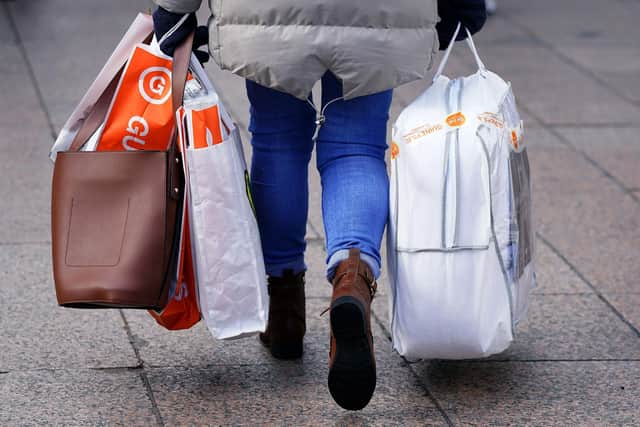Britons have cut back on groceries but spend more on TV subscriptions, figures show
Consumer card spending grew 4 per cent year-on-year in March, less than half the latest Consumer Prices Index rate, including owner occupiers’ housing costs, of 9.2 per cent, according to Barclays.
However, home improvement and DIY stores enjoyed a seasonal boost while spending on digital content and subscriptions was up 4.1 per cent – its highest year-on-year rise in five months – likely driven by the latest season premieres of popular shows such as Succession, Ted Lasso and The Mandalorian.
Advertisement
Hide AdAdvertisement
Hide AdEsme Harwood, director at Barclays, said: “The below-inflation rise in grocery spending shows that Brits are still trying their hardest to shave money off their weekly shop, as energy bills continue to rise.


“Cutbacks are also impacting restaurants, with a number of cash-strapped consumers even avoiding social plans that involve meals out."
Spending on groceries increased 7.1 per cent, well below the latest Office for National Statistics food price inflation rate of 18.2 per cent, as 88 per cent of shoppers say they were concerned about rising food prices and 62 per cent reported finding ways to reduce the cost of their weekly shop, according to the report, which combines hundreds of millions of customer transactions with consumer research.
More than half of those seeking savings (53 per cent) said they were cutting down on luxuries or one-off treats for themselves while 38 per cent said they were planning meals in advance to avoid wasting food or using vouchers to get money off their grocery bill.
Advertisement
Hide AdAdvertisement
Hide AdSpending on utilities was up 39.3 per cent on last year as cold weather persisted into March and households kept their heating on.
As household bills continued to rise, 54 per cent of consumers said they were cutting down on discretionary spending, especially eating out at restaurants (62 per cent) and buying new clothes and accessories (63 per cent).
Just a third of Britons (35 per cent) said they would spend on activities over the King’s Coronation bank holiday weekend in May, with 11 per cent saying they planned to buy food and drink for hosting friends or family and just 8 per cent planning to spend money on drinks in bars and pubs.
Ms Harwood added: “Hospitality and leisure businesses will be hoping that the busy bank holiday period provides a boost to counteract consumers’ everyday cost-savings.
Advertisement
Hide AdAdvertisement
Hide Ad“While predictions for the Coronation weekend are lacklustre, the results from Mother’s Day are more encouraging, demonstrating that Brits are still taking advantage of one-off moments to go out and celebrate.”
Opinium surveyed 2,000 respondents between March 24-28.
Opinium’s Grocery Sustainability Report, issued last month, also found that the cost of living crisis has left over half of Brits (55 per cent)unsatisfied with their ability to spend more on non-essential items.
Two in five (39 per cent) were also unsatisfied with their ability to live within their means.
This comes after Kantar calculated that as of November 2022, consumers would face a £682 increase on annual grocery bills if they did not change spending habits.
Kantar also found that in November, over a quarter of all households (27 per cent) said they were struggling financially, double the figure from the year prior.